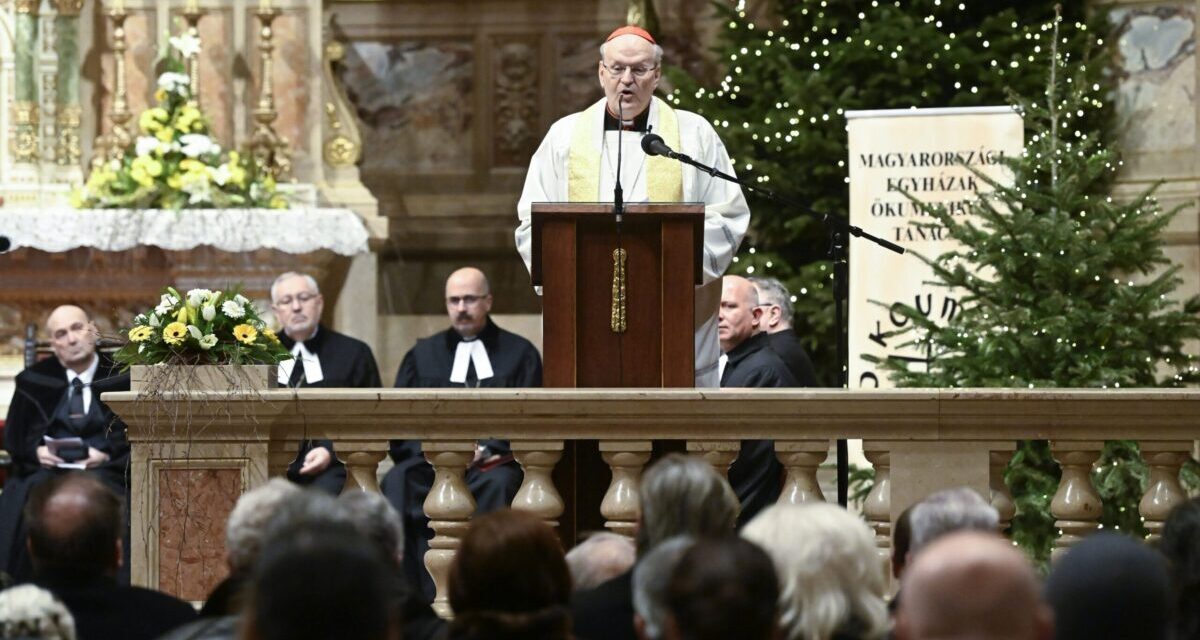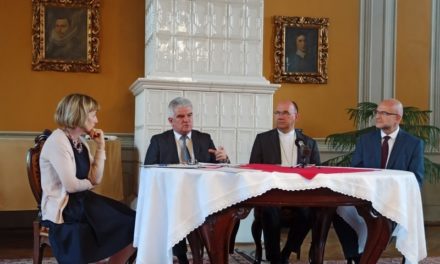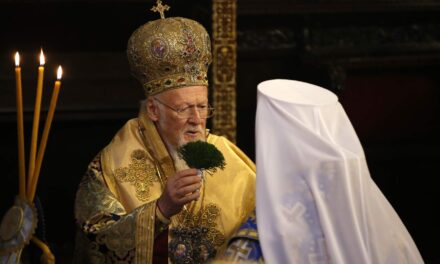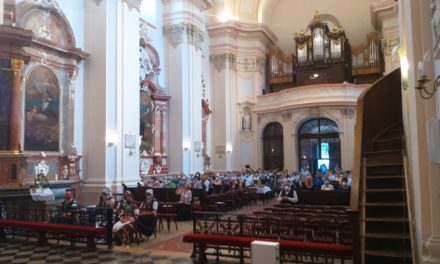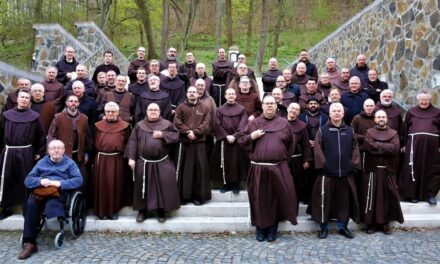The central message of the ecumenical week of prayer, which began on Sunday, this year is about the opposites of unity-division and love-hate.
The cardinal, Archbishop of Esztergom-Budapest, spoke about the importance of helping love, which connects Christians, but which extends not only to Christians, but to all people, at the national opening of the ecumenical week of prayer, in the St. Stephen's Basilica in Budapest.
At the opening service of the annual week of prayer for Christian unity, Cardinal Péter Erdő reminded us that Christians are united by the fact that they are all disciples of Christ, that they recognize Jesus of Nazareth as the Messiah.
And if we are his disciples, then we have to follow his teaching, he said.
Explaining the central gospel of the week of prayer, the story of the Good Samaritan, he emphasized: the message of the parable is that "for the sake of God, we must turn to each other with helping love, and we cannot exclude anyone from this love", "we cannot say of anyone that our love no longer applies to him". said the cardinal.
That is why it is such a great joy that our churches and charitable organizations, as well as Hungary in general, provide help to people affected by hunger, war, natural disasters or even persecution, even in the Middle East or Africa, Péter Erdő pointed out.
He also went on to say that this help alone cannot be enough to solve the misery of entire regions, just as the help of the Good Samaritan did not replace all the stolen property of the robbed man. Still, "the first aid given in a moment of crisis and the encouraging feeling of human love can give hope to the person in trouble".
Quoting St. Paul, Péter Erdő also said: the effect of helping love is even greater, since "through our mediation, it causes gratitude to God from others."
Reformed bishop József Steinbach, president of the Ecumenical Council of Hungarian Churches (MEÖT), pointed out in his sermon: the scribe's question at the beginning of the parable of the Good Samaritan, "What should I do to gain eternal life?", highlights the "basic state of our lives", that all our troubles, our misery, our sin, our conflict, our warfare comes from the fact that we are separated from God and we are mortal.
That is why in this world we want to realize and live everything right here and now, he said, adding: however, eternal life is an inheritance from God, for which we do not have to fight, which is "ready", we just have to accept it.
József Steinbach also touched on the fact that a person receives eternal life from Jesus Christ, who not only told the parable of the Good Samaritan, but also became the Samaritan in the parable by "going to the end for us" in his mercy and love on the cross of Calvary.
As authentic followers of Christ, our task is to dare to be merciful in today's merciless world, to take on the merciful risk of Christ's love, added the Reformed bishop.
At the end of the service, the participants prayed together for the persecuted Christians, as the starting day of the joint program series of the Hungarian Catholic Bishops' Conference and the MEÖT is also the Sunday of praying for persecuted Christians from 2018.
The leaders of the MEÖT member churches took part in the liturgical service.
MTI
Cover image: Cardinal Péter Erdő, Archbishop of Esztergom-Budapest, speaks at the national opening service of the Ecumenical Week of Prayer in St. Stephen's Basilica
Source: MTI/Tamás Kovács

